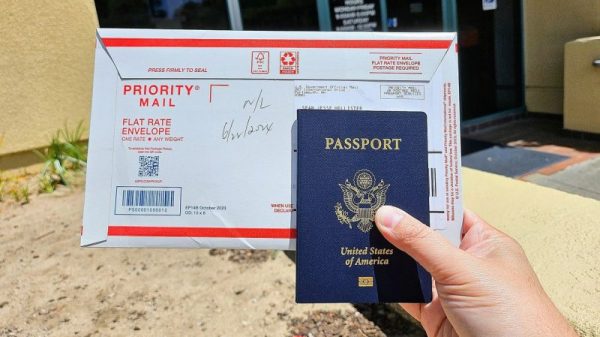Montgomery County’s housing commission can sell a Bethesda property containing a historic Black cemetery to a developer over the objections of the descendants of the dead and a group seeking to block the sale, a Maryland appeals court ruled this week.
The opinion is a blow to efforts to honor those buried in Moses Macedonia African Cemetery, which was paved over in the 1960s for a parking lot for the 200-unit Westwood Tower Apartments in the Westbard area.
The Bethesda Cemetery Coalition sued in 2021 to stop the Housing Opportunities Commission from selling the complex. The group won a preliminary injunction from a Montgomery County Circuit Court judge, but the Appellate Court of Maryland overturned that ruling.
The coalition argued Maryland law required the commission to seek court approval before selling the property, but the commission said it had the discretion to move forward without a sign-off from a judge. They were arguing over a 1924 law enacted to protect burial grounds.
The appeals court sided with the commission, while expressing sympathy for the plaintiffs. Charger Ventures pulled out of the $51 million deal for the property after the preliminary injunction was issued.
Steve Lieberman, an attorney for the coalition, blasted the appeals court ruling and said the coalition would appeal to the Maryland Supreme Court in the coming weeks. The court did find descendants of those interred on the site may be able to make claims against future owners of the site.
“This is one of the most shockingly insensitive and offbase rulings I’ve seen,” Lieberman said. “The court engaged in a narrow, technocratic ruling and ignored hundreds of years of law that make it clear the courts have an obligation to protect the sanctity of burial places.”
Lieberman said it could mean “open season” on some of Maryland’s historic Black burial grounds if the decision is not reversed.
Chelsea Andrews, executive director of the commission, said the ruling shows the agency properly followed the laws governing burial grounds in Maryland and its involvement with the Westwood Towers has been in the service of its mission to provide affordable housing.
“HOC acknowledges the significance of the African American history affiliated with this site and will continue to respect and honor this legacy in the community,” Andrews said.
The coalition has fiercely fought development plans for the site, saying it would desecrate the bones of the up to 400 people buried at the site. The cemetery and the Macedonia Baptist Church across the street are some of the final pieces of a Black community that once thrived in the area. Leaders of the church are spearheading the coalition.
People were interred at Moses Macedonia during the first half of the 20th century, but all signs of the graveyard were erased when the Westwood Tower was built from 1966 to 1968. The plight of the cemetery was is mirrored in many historic Black burial plots across the country that were bulldozed for development.
An archaeological consulting firm hired by Montgomery County in 2017 used old newspaper clippings, death records, property records and other materials to establish that a Black cemetery existed beneath the Tower parking lot.
Montgomery County’s housing commission can sell a Bethesda property containing a historic Black cemetery to a developer over the objections of the descendants of the dead and a group seeking to block the sale, a Maryland appeals court ruled this week.
The opinion is a blow to efforts to honor those buried in Moses Macedonia African Cemetery, which was paved over in the 1960s for a parking lot for the 200-unit Westwood Tower Apartments in the Westbard area.
The Bethesda Cemetery Coalition sued in 2021 to stop the Housing Opportunities Commission from selling the complex. The group won a preliminary injunction from a Montgomery County Circuit Court judge, but the Appellate Court of Maryland overturned that ruling.
The coalition argued Maryland law required the commission to seek court approval before selling the property, but the commission said it had the discretion to move forward without a sign-off from a judge. They were arguing over a 1924 law enacted to protect burial grounds.
The appeals court sided with the commission, while expressing sympathy for the plaintiffs. Charger Ventures pulled out of the $51 million deal for the property after the preliminary injunction was issued.
Steve Lieberman, an attorney for the coalition, blasted the appeals court ruling and said the coalition would appeal to the Maryland Supreme Court in the coming weeks. The court did find descendants of those interred on the site may be able to make claims against future owners of the site.
“This is one of the most shockingly insensitive and offbase rulings I’ve seen,” Lieberman said. “The court engaged in a narrow, technocratic ruling and ignored hundreds of years of law that make it clear the courts have an obligation to protect the sanctity of burial places.”
Lieberman said it could mean “open season” on some of Maryland’s historic Black burial grounds if the decision is not reversed.
Chelsea Andrews, executive director of the commission, said the ruling shows the agency properly followed the laws governing burial grounds in Maryland and its involvement with the Westwood Towers has been in the service of its mission to provide affordable housing.
“HOC acknowledges the significance of the African American history affiliated with this site and will continue to respect and honor this legacy in the community,” Andrews said.
The coalition has fiercely fought development plans for the site, saying it would desecrate the bones of the up to 400 people buried at the site. The cemetery and the Macedonia Baptist Church across the street are some of the final pieces of a Black community that once thrived in the area. Leaders of the church are spearheading the coalition.
People were interred at Moses Macedonia during the first half of the 20th century, but all signs of the graveyard were erased when the Westwood Tower was built from 1966 to 1968. The plight of the cemetery was is mirrored in many historic Black burial plots across the country that were bulldozed for development.
An archaeological consulting firm hired by Montgomery County in 2017 used old newspaper clippings, death records, property records and other materials to establish that a Black cemetery existed beneath the Tower parking lot.























